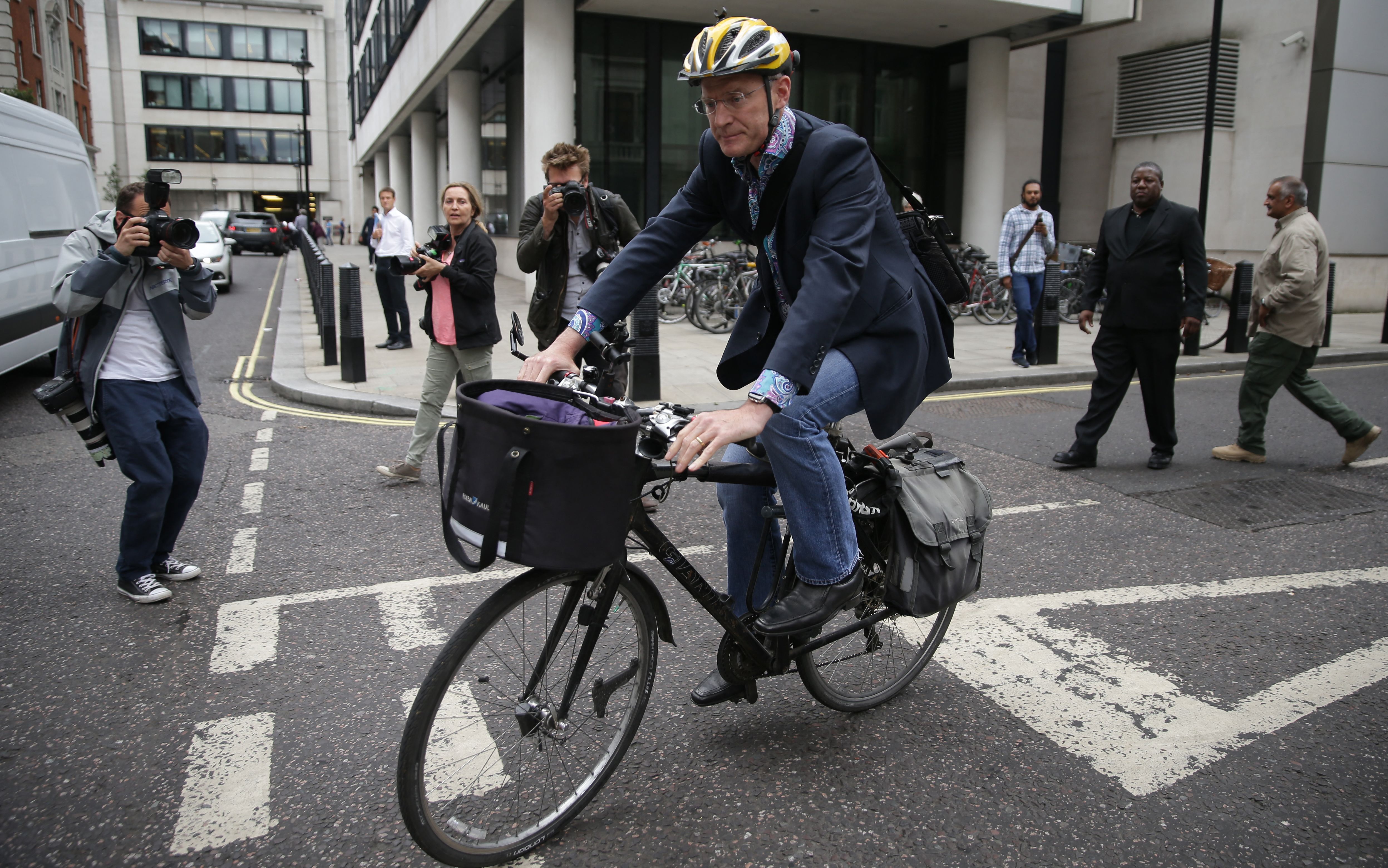Jeremy Vine: 'We have let so much of our cities go over to cars that we’re having to pull it back'
The television presenter says that "cars have become obese, followed by the drivers"


It should come as no surprise that Jeremy Vine thinks more needs to be done to make cycling safer and get more people on bikes, with the 57-year-old journalist turning into one of the most prominent cycling campaigners in the UK.
It will also come as no surprise to the readers of Cycling Weekly that cycling on Britain's roads is a dangerous activity; however, the BBC Radio 2 and Channel 5 presenter still faces vitriol for voicing seemingly common sense opinions on the issue.
In an interview with The Guardian, published on Friday, Vine said: "We have let so much of our cities go over to cars that we’re having to pull it back, and that requires incredibly difficult politics.”
However, he added: "This is not a political thing – if you can create safe cycling space, you have the potential to free up thousands of miles of the transport network, and cleaning up the city, making it safer.”
Although if you do this, doing the common sense thing, “you run into the sort of opposition that doesn’t make any sense at all, the most bizarre pressure groups".
Earlier this month Vine criticised the Royal Borough of Kensington and Chelsea Council (RKBC) accusing them of being “anti cyclist after a "horror show’" journey with his wife.
The presenter explained that he started cycling in his mid-40s after he was getting “fatter and sadder”, and now rides 15 miles every weekday.
The latest race content, interviews, features, reviews and expert buying guides, direct to your inbox!
“It’s all you need to stay fit,” he explained. “As someone brilliantly said, the bike is a flying machine powered by muffins. There is just the risk of sudden death. And that’s what began to make me more assertive about safety.”
Vine began filming his cycling in order to try and show up bad drivers for their behaviour, which he thought was the only way to tackle the issue.
“I thought, I need to properly try to understand what’s putting me at risk and take whatever measures I can," he said. "For me, that was enforcement. I think that in the end, bad drivers respond to enforcement.”
Despite being a BBC employee, with a long-running BBC Radio 2 radio show, he said he is not worried of being accused of being biased on the subject.
“I think the general principle is, I can speak truthfully and from my own point of view about issues like cycling down this street, which I do every day, or road deaths," he explained. "We’re not impartial about road death – it’s a bad thing, and cycle safety is a good thing, and it’s clear that the more segregated cycle lanes you have, the safer cyclists are.”
Vine thinks that something has changed in the driving mentality, which has made roads more dangerous for vulnerable road users, such as cyclists.
“For too long we’ve had the view that if you’re driving a car, and you’re going at 29mph on a 30mph street, it doesn’t matter what happens in front of you, you’re not to blame,” he said. “You become much more conscious of other road users when you are vulnerable yourself.
“But something odd has happened with car safety. Cars are sold on the basis you’ll be moving around in a massive shell, with airbags. No one who buys a car ever says: ‘What will happen if this hits a child?’ Clearly the mindset has changed. The cars have become obese, followed by the drivers.”

Adam is Cycling Weekly’s news editor – his greatest love is road racing but as long as he is cycling, he's happy. Before joining CW in 2021 he spent two years writing for Procycling. He's usually out and about on the roads of Bristol and its surrounds.
Before cycling took over his professional life, he covered ecclesiastical matters at the world’s largest Anglican newspaper and politics at Business Insider. Don't ask how that is related to riding bikes.